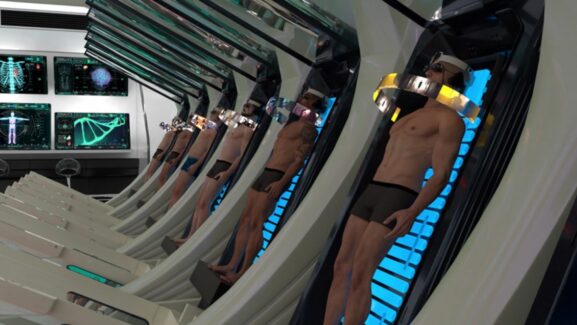Unveiling the Power of AI: Predicting Political Affiliation from Facial Features
In a groundbreaking study recently published in the esteemed American Psychologist journal, researchers from Stanford University’s Graduate School of Business revealed a startling connection between facial features and political orientation. Their findings suggest that artificial intelligence (AI) combined with facial recognition technology can accurately discern an individual’s political leanings simply by analyzing their neutral facial expression.
Before delving into the experiment, the researchers first had 591 participants complete a detailed political questionnaire, providing valuable insights into their beliefs. Subsequently, these participants underwent scanning by the researchers’ AI algorithm, which aimed to pinpoint their placement on the political spectrum. Remarkably, the algorithm demonstrated a remarkable accuracy in determining political orientation, even when factors such as age, gender, and ethnicity were eliminated from consideration.
The study’s authors noted that the algorithm’s predictive accuracy was further enhanced when these demographic factors were included in the analysis. This level of precision, they claim, rivals the effectiveness of job interviews in predicting job success or the correlation between alcohol consumption and aggressiveness.
Building upon previous research that highlighted disparities in facial morphology between liberals and conservatives, the study unearthed intriguing findings. Liberals tended to exhibit smaller facial features, including lower faces, lips, and noses, with smaller chins compared to conservatives. This correlation between facial appearance and political orientation led researchers to speculate on the influence of social expectations on personality development, suggesting a potential self-fulfilling prophecy effect.
By leveraging this alleged correlation, researchers devised a facial recognition algorithm capable of accurately predicting political affiliation based on facial characteristics. According to their findings, both humans and algorithms could successfully discern political orientation from neutral facial images, even after accounting for demographic variables.
The implications of these findings extend beyond academic curiosity. The researchers warned of the potential ramifications of widespread biometric surveillance technologies, particularly concerning political targeting in online messaging. The ability of AI to infer political leanings from facial features could significantly impact political campaigns and communication strategies.
In essence, this study sheds light on the intricate relationship between facial features and political affiliation, offering insights into the potential applications and ethical considerations of AI-driven facial recognition technology in the realm of politics.
Subscribe to the AI Insider Newsletter and never miss any hot news about the development of Artificial Intelligence.



